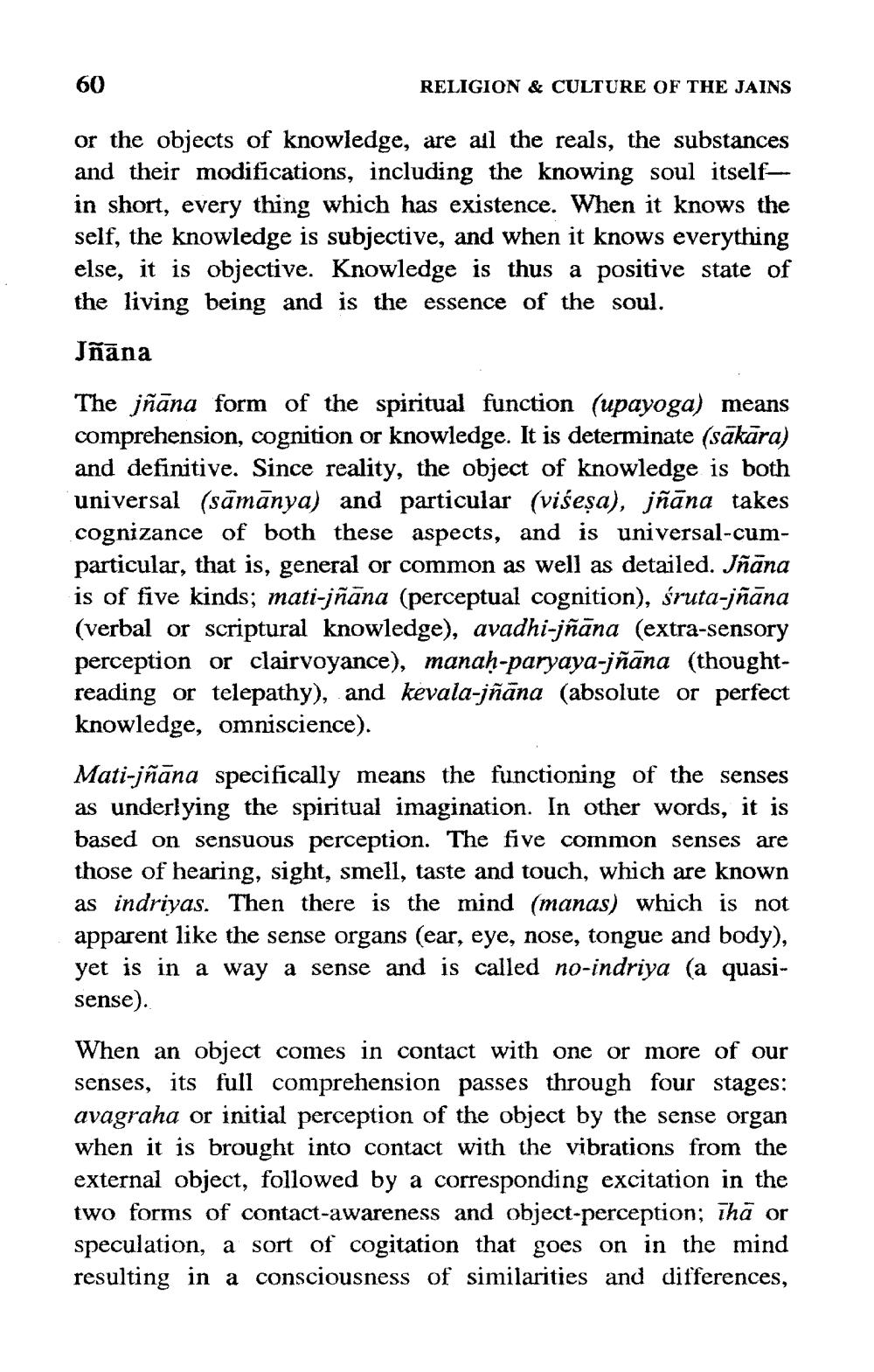________________
60
RELIGION & CULTURE OF THE JAINS
or the objects of knowledge, are all the reals, the substances and their modifications, including the knowing soul itselfin short, every thing which has existence. When it knows the self, the knowledge is subjective, and when it knows everything else, it is objective. Knowledge is thus a positive state of the living being and is the essence of the soul.
Jmāna
The jñāna form of the spiritual function (upayoga) means comprehension, cognition or knowledge. It is determinate (sākāra) and definitive. Since reality, the object of knowledge is both universal (samānya) and particular (višeşa), jñāna takes cognizance of both these aspects, and is universal-cumparticular, that is, general or common as well as detailed. Jñāna is of five kinds; mati-jñāna (perceptual cognition), śruta-jñāna (verbal or scriptural knowledge), avadhi-jñāna (extra-sensory perception or clairvoyance), manah-paryaya-jñāna (thoughtreading or telepathy), and kevala-jñāna (absolute or perfect knowledge, omniscience). Mati-jñāna specifically means the functioning of the senses as underlying the spiritual imagination. In other words, it is based on sensuous perception. The five common senses are those of hearing, sight, smell, taste and touch, which are known as indriyas. Then there is the mind (manas) which is not apparent like the sense organs (ear, eye, nose, tongue and body), yet is in a way a sense and is called no-indriya (a quasisense).
When an object comes in contact with one or more of our senses, its full comprehension passes through four stages: avagraha or initial perception of the object by the sense organ when it is brought into contact with the vibrations from the external object, followed by a corresponding excitation in the two forms of contact-awareness and object-perception; Thā or speculation, a sort of cogitation that goes on in the mind resulting in a consciousness of similarities and differences,




